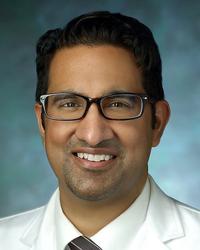Research Lab Results
-
Lilly Engineer Lab
Research in the Lilly Engineer Lab examines the quality and safety of medical care, with a focus on rural and underserved communities. Our current research evaluates methods for improving immunization rates among inner-city populations of school-aged children. We are also exploring the effect of federal policy changes and health care market forces on rural hospitals in the United States.
-
Lisa Cooper Lab
The Lisa Cooper Lab is dedicated to researching patient-centered interventions for improving health outcomes and overcoming racial and ethnic disparities in health care. Our primary focus is on the factors of physician communication skills and cultural competence training, patient shared decision-making and self-management skills training. Recently, we have explored patient-centered depression care for African Americans, tactics for improving patient-physician communication about management of hypertension, and reducing ethnic and social disparities in health. In addition, we are currently researching racial disparities in cardiovascular health outcomes for patients living in Baltimore. -
Kimberly Skarupski Lab
Research in the Kimberly Skarupski Lab focuses on depression, geriatric medicine, psychiatry and the behavioral sciences. Recent studies have investigated various aspects of cognitive decline in biracial older adult and urban older adult community-based populations. Additional studies have investigated depression symptoms, disability and worship practices in older adults, with particular attention to racial disparities in these areas.
-
Neuro-Oncology Surgical Outcomes Laboratory
Directed by Debraj “Raj” Mukherjee, MD, MPH, the laboratory focuses on improving access to care, reducing disparities, maximizing surgical outcomes, and optimizing quality of life for patients with brain and skull base tumors.
The laboratory achieves these aims by creating and analyzing institutional and national databases, developing and validating novel patient-centered quality of life instruments, leveraging machine learning and artificial intelligence platforms to risk-stratify vulnerable patient populations, and designing novel surgical trials to push the boundaries of neurosurgical innovation.
Our research also investigates novel approaches to improve neurosurgical medical education including studying the utility of video-based surgical coaching and the design of new operative instrumentation.
-
Meredith McCormack Lab
Research in the Meredith McCormack Lab deals primarily with pulmonary diseases, such as asthma and chronic obstructive pulmonary disease (COPD), and the role of environmental exposures in lung diseases. We have researched the factors that contribute to inner-city asthma, with a focus on how particulate matter air pollution impacts pulmonary function. We are also part of the LIBERATE clinical study, which is focused on patients who experience difficulty breathing and have been diagnosed with severe emphysema. We also have a longstanding interest in the effects of race/ethnicity, poverty and urbanization on nutrition and food allergies.
-
Rasika Mathias Lab
Research in the Rasika Mathias Lab focuses on the genetics of asthma in people of African ancestry. Our work led to the first genomewide association study of its kind in 2009. Currently, we are analyzing the whole-genome sequence of more than 1,000 people of African ancestry from the Consortium on Asthma among African-ancestry Populations in the Americas (CAAPA). CAAPA’s goal is to use whole-genome sequencing to expand our understanding of how genetic variants affect asthma risk in populations of African ancestry and to provide a public catalog of genetic variation for the scientific community. We’re also involved in the study of coronary artery disease though the GeneSTAR Program, which aims to identify mechanisms of atherogenic vascular diseases and attendant comorbidities. -
Research on Reproductive Health Care for Incarcerated People
The Advocacy and Research on Reproductive Wellness of Incarcerated People (ARRWIP) group was founded in 2017 by Dr. Carolyn Sufrin of Johns Hopkins Complex Family Planning Serivces. The goal of our research is to create opportunities to improve reproductive wellbeing for people affected by the criminal legal system – including making full-scope, compassionate reproductive health care accessible for people experiencing incarceration and advocating for alternatives to incarceration. -
The Boss Lab
The Boss Lab's research focus is on patient experience, health disparities, and surgical outcomes and utilization. Studies include shared decision-making, communication, and patient/parent-reported outcomes for elective surgery in children; patient satisfaction metrics, outcomes, and health correlates in surgery and pediatrics; patient and family-centered care and communication in surgery and pediatrics; racial, ethnic, and socioeconomic disparities in pediatric surgical care utilization and outcomes; and quality and safety in pediatric surgical care


